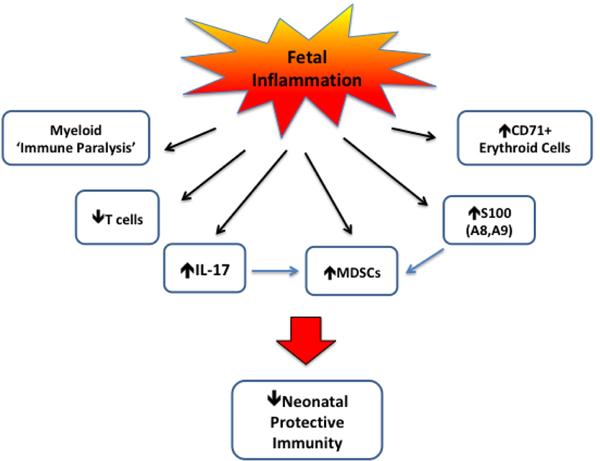Figure 2. Potential mechanisms of suppressed protective immunity in neonates exposed to fetal inflammation associated with HCA.
Experimental HCA has been associated with ‘immune paralysis’ as suggested by decreased LPS responsiveness in fetal sheep monocytes. HCA has been variably associated with quantitative and qualitative defects in T cells. Conversely, increases in Th17 and inflammatory Treg cells promote IL-17 release. While IL-17 provides immune protective function, it can also promote the generation of myeloid-derived suppressor cells (MDSCs), which adversely affect protective immunity. The increased expression of S100 proteins, particularly S100A8 and S100A9, may promote host protection; however, high levels can increase MDSC generation. Recent evidence also indicates an immunosuppressive role of CD71+ erythroid cells, which could potentially be increased with HCA.

